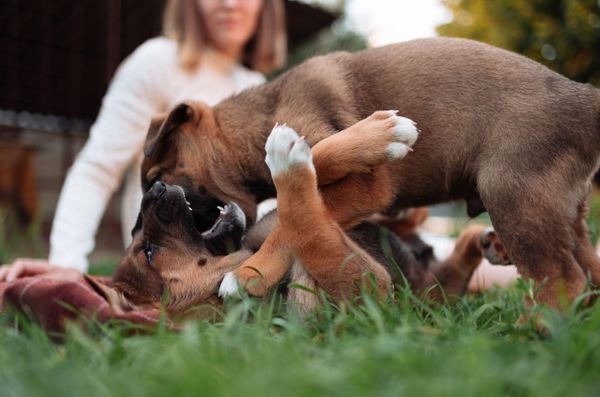Purchasing your very first dog online could be rewarding and even exhilarating. Dogs offer companionship, loyalty, and unconditional love. However, being a responsible dog owner requires more than providing food, shelter, and medical care. Early training and socialisation are key factors in your dog’s development, impacting their temperament, behaviour, and the bond you share. Today we’ll shed some light on the importance of these aspects and offer practical advice to help you navigate this journey.
Why Training and Socialization Matter
Training and socialisation form the cornerstone of your dog’s mental health and overall well-being. They contribute significantly to your pet’s personality, creating a well-rounded and adaptable companion. Early training instils good behaviour, builds confidence, and curbs potential behavioural issues. Socialisation, on the other hand, helps dogs understand how to interact appropriately with humans, other animals, and their environment. Get answers to your questions by checking out Puppy Training in Fort Myers, FL.
The Impact of Early Training
The adage “you can’t teach an old dog new tricks” isn’t entirely true, but it does highlight the significance of early training. Dogs, especially puppies, are extremely receptive during their early months, making this the ideal time for training. You can also check out H.K. Dog Training for more great options.
Obedience Training
One of the first steps in dog training is obedience training, which establishes essential commands like “sit,” “stay,” “come,” and “leave it.” These commands are not just about exhibiting control over your dog, but they also serve as critical communication tools, improving your relationship with your dog and ensuring their safety in potentially dangerous situations.
Start obedience training as soon as your puppy is comfortable in your home. Keep training sessions short (5–10 minutes) and frequent, with plenty of positive reinforcement. Dogs are motivated by rewards – be it treats, toys, or praise – so make sure to reward good behaviour immediately.
House Training
House training is another critical component of early dog training. This involves teaching your dog where it’s acceptable to eliminate and where it isn’t. Consistency, patience, and positive reinforcement are key.
Establish a routine early on—take your puppy out first thing in the morning, after meals, and before bed. If an accident happens indoors, don’t punish your dog. Instead, calmly clean the mess and continue reinforcing the routine.
The Power of Socialization
Socialisation is as important as training in a dog’s development. Dogs are social creatures and need to learn how to interact appropriately with the world around them. Introducing your dog to a variety of people, environments, and other animals early in their life can help avoid fearfulness and aggression later on.
Introducing Your Dog to Other Animals and People
Start by introducing your dog to other household members and pets. Do this in a controlled, calm environment to avoid overwhelming your dog. Reward positive interactions to reinforce good behaviour.
When introducing your dog to strangers or unfamiliar animals, make sure to control the situation and keep the experience positive. If your dog seems scared or agitated, give them space and try again later.
Public Spaces and Unfamiliar Situations
After your puppy is comfortable around new people and animals, start introducing them to public spaces and new experiences. This can include walks in the park, car rides, visits to the vet, or even exposure to various noises at home. All these experiences can help your dog become more adaptable and resilient.
Addressing Behavioral Issues
Despite your best efforts, your dog may develop behavioural issues. These can range from destructive chewing and barking to separation anxiety and aggression. It’s important to identify these issues early and address them promptly.
Destructive Behaviour
Destructive behaviour in dogs often stems from boredom or separation anxiety. Ensuring that your dog gets plenty of physical exercise and mental stimulation can prevent this. If your dog is anxious when left alone, gradually increase the time they spend alone and make your departures and arrivals low-key.
Aggression
Aggression can be a serious problem and should be addressed with the help of a professional. It can stem from fear, frustration, or lack of socialisation. Proper socialisation, obedience training, and maintaining a calm environment can help mitigate aggression. However, if the problem becomes too severe, it’s important to contact a vet and a canine behaviourist to ensure the safety of both you and your dog.
Conclusion
While training and socialisation might seem daunting at first, they are vital for your dog’s well-being and for fostering a healthy relationship between you two. Remember, patience, consistency, and positive reinforcement are key. Your hard work will pay off, leading to a happy, well-adjusted, and well-behaved companion.
Owning a dog is a significant responsibility, but it also brings joy, fulfilment, and the knowledge that you’re giving an animal a loving home. With proper training and socialisation, you’ll be well on your way to responsible dog ownership, ensuring a happy and harmonious life for you and your furry friend.

